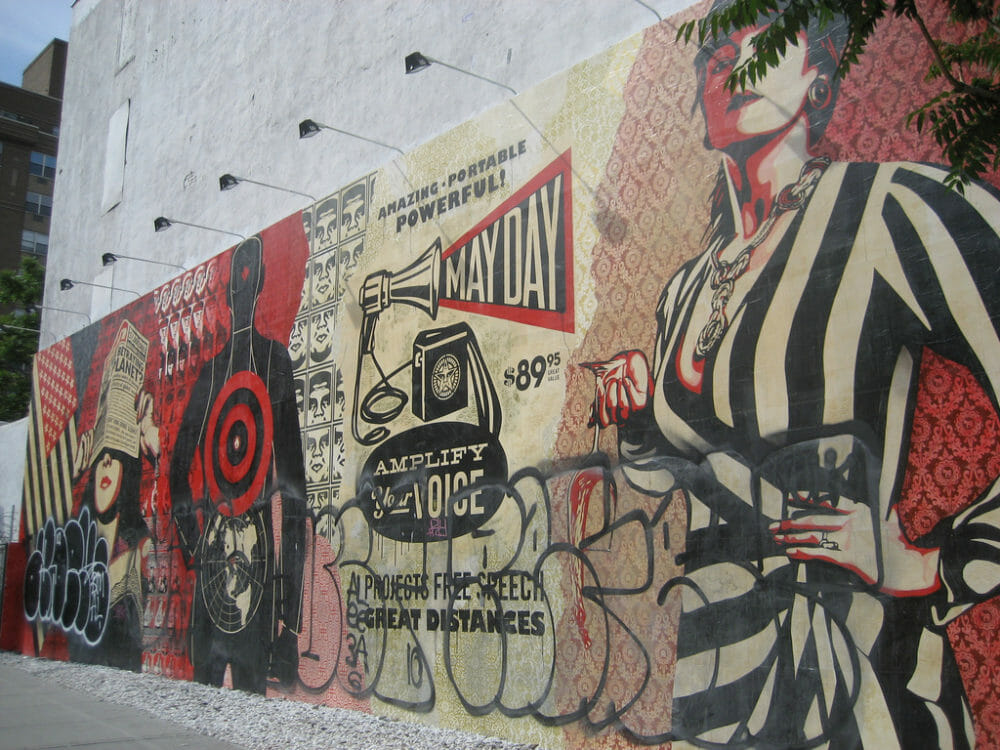Is OpenAI responsible for what its popular AI chatbot,Roman Huber ChatGPT, says? A new lawsuit against the company filed by a Georgia-based radio host argues that the company is.
Armed America Radio host Mark Walters filed against OpenAI for defamation earlier this week, marking the first such case in AI, according to Bloomberg.
So, what happened? According to the complaint, Fred Riehl, the editor-in-chief of the gun outlet AmmoLand, was doing research for an article on a Washington federal court case, Second Amendment Foundation v. Ferguson.
When Riehl asked ChatGPT for a summary of the case, ChatGPT responded with information about Walters, who the AI chatbot said was the Second Amendment Foundation's treasurer and chief financial officer. According to Walters' suit, ChatGPT told Riehl that Walters engaged in "defrauding and embezzling funds" from the organization it said he worked for.
The lawsuit states that, according to ChatGPT, Walters "misappropriated funds for personal expenses without authorization or reimbursement, manipulated financial records and bank statements to conceal his activities, and failed to provide accurate and timely financial reports and disclosures to the SAF's leadership."
One problem: Everything ChatGPT allegedly told Riehl about the case and Walters was completely fabricated. Walters did not defraud or embezzle funds from the Second Amendment Foundation. In fact, Walters doesn't nor has he ever worked for the organization. The Second Amendment Foundation v. Fergusoncase isn't even about financial fraud, it's a suit filed by the gun group against the Attorney General Bob Ferguson over Washington state's gun laws. As Gizmodopoints out, Walters isn't mentioned anywhere in the actual 30-page lawsuit from the Second Amendment Foundation.
SEE ALSO: A lawyer used ChatGPT for legal filing. The chatbot cited nonexistent cases it just made upWhen Riehl asked ChatGPT at the time to confirm what the AI chatbot was saying about the court case and Walters, it insisted the information was correct. ChatGPT even returned with what it had said was "the paragraph from the complaint that concerns Walters.” ChatGPT proceeded to quote a completely made-up paragraph that does not appear anywhere in the actual Second Amendment Foundation v. Ferguson filing. The AI chatbot even cited an "erroneous case number.”
Riehl did not end up publishing a piece based on ChatGPT's information. However, Walters still filed this lawsuit against OpenAI and is seeking "punitive damages in an amount to be determined at trial."
While Walters may be the first to bring "AI hallucinations" to court, the trend of AI manufacturing false information will likely result in more such cases in the near future. An Australian mayor threatenedto sue OpenAI back in April after ChatGPT claimed he was a convicted criminal in a bribery scandal when in fact he was the whistleblower in the case.
Topics Artificial Intelligence ChatGPT OpenAI
(Editor: {typename type="name"/})
 The Anatomy of Liberal Melancholy
The Anatomy of Liberal Melancholy
 Adorable toddler doesn't really want her aunt to take a selfie
Adorable toddler doesn't really want her aunt to take a selfie
 The Mooch bids America farewell with bizarrely poetic parting words
The Mooch bids America farewell with bizarrely poetic parting words
 Lakers fan celebrates NBA title win from inside giant bubble
Lakers fan celebrates NBA title win from inside giant bubble
 The Baffler’s May Day Round Up
The Baffler’s May Day Round Up
Shop Owala's Memorial Day Sale for 30% off tumblers
 SAVE 30%:This Memorial Day, shop Owala's tumblers for 30% off. Get a 40 oz. tumbler for just $28 and
...[Details]
SAVE 30%:This Memorial Day, shop Owala's tumblers for 30% off. Get a 40 oz. tumbler for just $28 and
...[Details]
Pence faced no LGBTQ questions at the debate. That's a failure.
 Even if we're going to be talking about that fly for a while, there's one thing Mike Pence didn'thav
...[Details]
Even if we're going to be talking about that fly for a while, there's one thing Mike Pence didn'thav
...[Details]
'Sesame Street' teaches kids how to stand up to racism in new special
 Sesame Workshop, the nonprofit educational arm of beloved children's show Sesame Street, debuts a ne
...[Details]
Sesame Workshop, the nonprofit educational arm of beloved children's show Sesame Street, debuts a ne
...[Details]
Silver lining: Apple reduces price of EarPods and iPhone power adapter to $19
 We knew it was coming, but it's still annoying for many users: Apple is now shipping iPhones without
...[Details]
We knew it was coming, but it's still annoying for many users: Apple is now shipping iPhones without
...[Details]
Amazon Pet Day: All the best deals
 Table of ContentsTable of ContentsBest deals from Amazon Pet Day Best automatic feede
...[Details]
Table of ContentsTable of ContentsBest deals from Amazon Pet Day Best automatic feede
...[Details]
Holocaust denial is now banned on Facebook
 Facebook is expanding its recent crackdown on dangerous conspiracy theories to include Holocaust den
...[Details]
Facebook is expanding its recent crackdown on dangerous conspiracy theories to include Holocaust den
...[Details]
New York Post declares boobs trendy again, the internet collectively rolls its eyes
 The New York Postis getting royally dragged after it tweeted an article declaring "boobs are back,"
...[Details]
The New York Postis getting royally dragged after it tweeted an article declaring "boobs are back,"
...[Details]
Disney+'s 'The Right Stuff' is a space drama with slow liftoff
 The Right Stuffseries begins on the morning of the Mercury-Redstone 3 spaceflight at Cape Canaveral
...[Details]
The Right Stuffseries begins on the morning of the Mercury-Redstone 3 spaceflight at Cape Canaveral
...[Details]
Is it 'Thunderbolts*' or *The New Avengers'?
 Marvel Studios unveiled a bold marketing strategy to promote Thunderbolts* with a promotional billbo
...[Details]
Marvel Studios unveiled a bold marketing strategy to promote Thunderbolts* with a promotional billbo
...[Details]
We tested just how mini the iPhone 12 Mini really is
 Hear ye, hear ye: The tyranny of overwhelmingly large iPhones over women with perfectly normal sized
...[Details]
Hear ye, hear ye: The tyranny of overwhelmingly large iPhones over women with perfectly normal sized
...[Details]
This is the fattest of the extremely fat bears

Say hi to Sarahah, the anonymous messaging app ruining Snapchat for teens

接受PR>=1、BR>=1,流量相当,内容相关类链接。